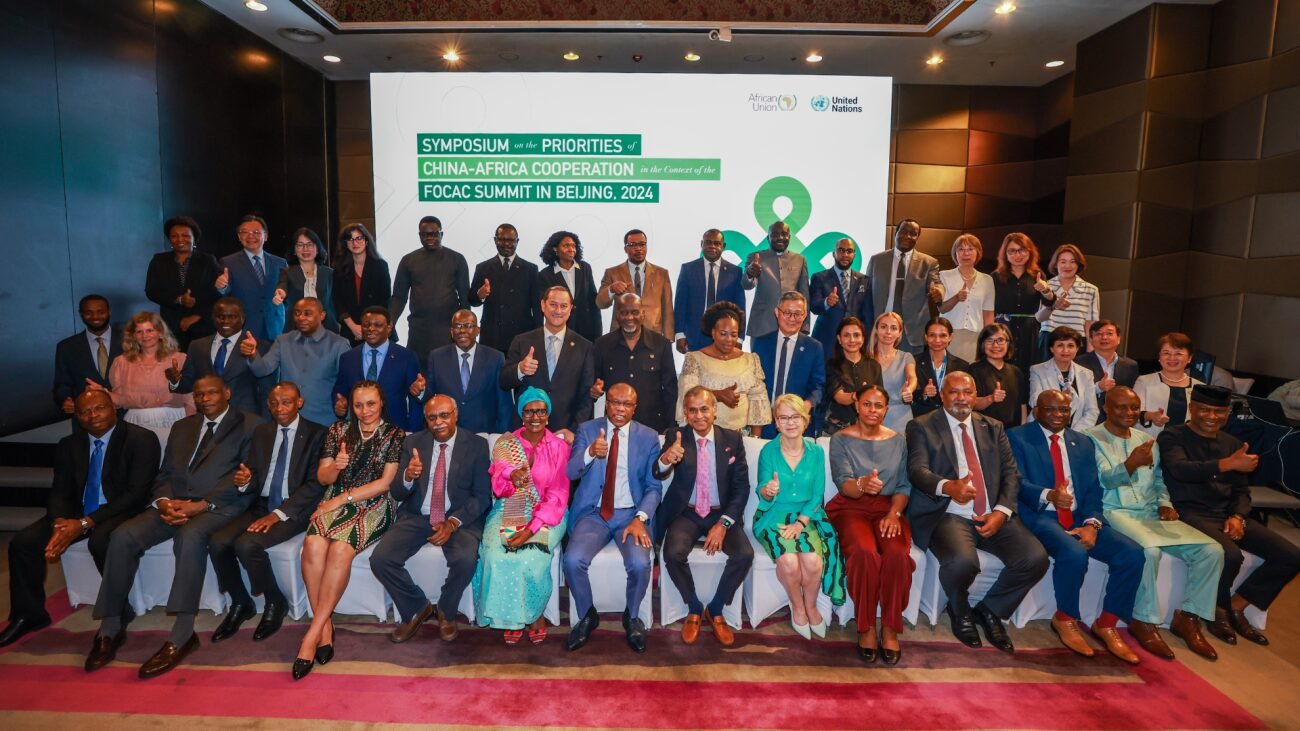Understanding South-South Cooperation
South-South cooperation refers to the collaborative efforts and partnerships established between developing countries, aimed at sharing knowledge, resources, and technology to address common challenges. This concept has its roots in the mid-20th century when nations in the Global South sought to foster solidarity and mutual support in the face of shared historical and socio-economic challenges. The emphasis on self-reliance and empowerment marked a significant shift from traditional donor-receiver dynamics prevalent in North-South cooperation, where power asymmetries often persist.
Historically, the importance of South-South cooperation gained momentum during the 1970s, particularly during the United Nations Conference on Trade and Development (UNCTAD), where developing nations recognized the need to collaborate in economic development. The establishment of platforms like the Group of 77 (G77) and the Non-Aligned Movement exemplified collective aspirations of countries that aimed to amplify their voices in global affairs. Over the decades, these partnerships have evolved while addressing various sectors, including education, health, agriculture, and technology transfer.
In the current global landscape, South-South cooperation plays a crucial role in fostering innovation and resilience among developing nations, especially in light of challenges such as climate change, economic disparity, and public health crises. By leveraging shared experiences and resources, countries engaged in South-South cooperation can devise tailored solutions that are more contextually relevant and sustainable. Furthermore, this collaborative approach cultivates a sense of ownership and accountability among participating countries, as they navigate pathways toward achieving the Sustainable Development Goals (SDGs).
Unlike traditional international partnerships, South-South cooperation underscores the significance of reciprocity and mutual benefit, creating a platform where developing nations can exchange best practices. This framework not only promotes learning and adaptation but also enhances the overall capacities of these nations to respond effectively to pressing local and global challenges.
Innovative Solutions Emerging from the Global South
The Global South has emerged as a fertile ground for innovative solutions aimed at tackling pressing regional challenges while contributing to global sustainable development. This region has witnessed a plethora of initiatives that underline the creativity and resourcefulness of local communities. One notable area of innovation is climate-smart agriculture, which integrates sustainable farming practices designed to enhance productivity while reducing the environmental footprint. By adopting techniques such as intercropping, agroforestry, and the use of organic fertilizers, farmers are not only increasing food security but are also better equipped to adapt to climate variability. These practices serve as vital steps toward achieving long-term agricultural sustainability.
In addition to agriculture, advancements in green technologies are becoming increasingly prevalent in the Global South. Solar energy projects, for example, have gained significant traction, providing clean and affordable energy solutions. Countries like India have pioneered large-scale solar farms, demonstrating how local resources can be harnessed effectively to tackle energy poverty while contributing to the global shift toward renewable energy sources. These innovations not only foster energy independence but also stimulate local economies through job creation and technology transfer.
Furthermore, digital finance innovations showcase another compelling aspect of the Global South’s response to development challenges. Fintech solutions, such as mobile banking and peer-to-peer lending platforms, are becoming vital in enhancing financial inclusion. These platforms provide low-income populations access to credit and investment opportunities, thereby empowering them economically and socially. Such initiatives contribute to building resilient communities that can sustain themselves and flourish in an increasingly interconnected world.
Breakthroughs in healthcare, particularly telemedicine and low-cost medical technologies, further illustrate the Global South’s commitment to self-reliance. By leveraging technology, countries are reducing barriers to healthcare access, ensuring that remote and underserved populations receive essential medical services. This approach not only enhances individual health outcomes but also strengthens the overall healthcare infrastructure, paving the way for improved public health. The innovative responses originating from the Global South exemplify the potential of collaborative and homegrown solutions in the pursuit of sustainable development.
The Role of Developed Nations in Advancing Equity
Developed nations have a critical role in promoting equity and facilitating sustainable development in their less affluent counterparts. The dynamics of international cooperation necessitate a concerted effort to address the disparities that exist between nations. As globalisation continues to blend economies and societies, it becomes imperative for wealthier nations to leverage their resources, knowledge, and influence to support developing countries in their pursuit of prosperity and stability.
One significant responsibility falls on developed nations to provide financial assistance and investment in infrastructure projects that directly uplift communities in developing regions. This can include funding for health care, education, and renewable energy initiatives. By aligning investments with the Sustainable Development Goals (SDGs), developed countries can cultivate an environment where developing nations can thrive. Such financial support should be coupled with capacity-building efforts that empower local institutions and enhance governance structures, promoting self-sufficiency.
Furthermore, reducing trade barriers and fostering fair trade practices is essential. Developed nations should advocate for policies that ensure equitable access to markets for developing countries, thereby facilitating economic growth and diversification. By promoting fair trade, developed countries not only support local economies but also help eradicate poverty and inequality. Additionally, technology transfer and knowledge sharing play pivotal roles in advancing the capabilities of developing nations. Engaging in collaborative research and development can foster innovation tailored to local needs, ensuring that technological advancements benefit all nations.
Addressing global inequalities requires a genuine commitment from developed nations to act as partners rather than mere benefactors. Such solidarity affirms the interconnected nature of the global community, where the progress of one nation positively influences the welfare of others. Through strategic support and equitable practices, developed countries can significantly advance equity and contribute to a more sustainable and inclusive world.
The Future of Global Cooperation: Embracing Multilateralism
As the world navigates complex challenges such as climate change, economic inequality, and health crises, the need for effective global cooperation has become increasingly pressing. South-South cooperation presents a transformative opportunity, acting as a robust catalyst for renewed multilateralism. By fostering close collaboration among developing countries, South-South cooperation emphasizes inclusivity, setting a foundation for a more equitable global landscape. This approach champions shared learning and mutual respect, which are essential in addressing common adversities.
The essence of this cooperation is rooted in the recognition that diverse nations can come together to share knowledge, technologies, and best practices tailored to their unique circumstances. By pooling resources and expertise, countries within the Global South can achieve sustainable development goals more efficiently and effectively. This process not only enhances their individual capabilities but also strengthens their collective power in international negotiations and governance frameworks.
To fully realize the potential of South-South cooperation, several recommendations can be considered. First, enhancing frameworks that prioritize equitable resource sharing ensures that all participating nations benefit from collaborative efforts. This could be achieved through establishing transparent mechanisms for development assistance that promote accountability and trust. Additionally, fostering platforms for dialogue and exchange of ideas between nations can contribute to a robust culture of innovation and problem-solving, vital in today’s interconnected world.
Furthermore, it is essential to integrate technology into cooperative initiatives. Leveraging digital tools can facilitate real-time communication and information exchange, thus building stronger partnerships. Moreover, investing in capacity-building programs can equip nations with the skills necessary to tackle multifaceted global challenges. Through these efforts, South-South cooperation can pave the way for a future marked by solidarity, shared prosperity, and sustainable development, reaffirming a commitment to multilateralism as an essential pillar of global governance.




